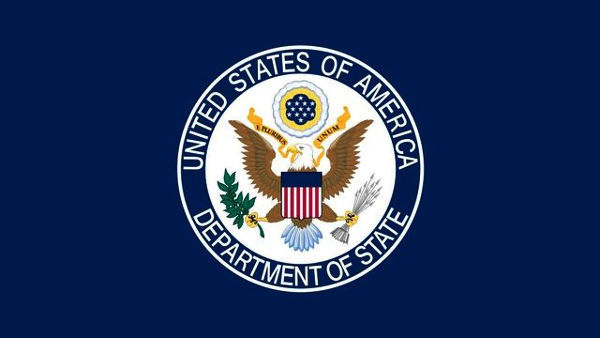A US State Department report has described the Communist Party of India (Maoist) as the world’s sixth deadliest terror organisation while ranking India as the fourth worst terrorism-hit country, where 57% terrorist incidents last year were reported from Jammu and Kashmir (J&K).
In its Country Report on Terrorism 2018 released on Friday, the State Department has blamed Communist Party of India (Maoist) for the killing of 311 people last year in 177 terror incidents even as the Union home ministry data shows there were 240 deaths in 833 violent incidents involving the group in 2018.
It has ranked the Communist Party of India (Maoist) as the deadliest terror organisation globally after the Taliban (Afghanistan), IS or the so-called Islamic State, Al-Shabaab (Africa), Boko Haram (Africa) and the Communist Party of the Philippines.
The report has ranked India as the fourth most terror-hit country globally after Afghanistan, Syria and Iraq. It noted that “weaknesses in intelligence and information sharing negatively impacted state and central law enforcement agencies” in countering terror in India.
“CPI-Maoist [also called Naxals] was the main perpetrator of [terror] incidents in India in 2018, responsible for 176 [26% of all] incidents. Jaish-e-Mohammed [JeM] was responsible for 60 [9% of all] incidents. Hizbul Mujahideen was responsible for 59 [9% of all] incidents while Lashkar-e Tayyiba [LeT] was responsible for 55 [8% of] incidents,” the report said.
“Other groups, such as the United Liberation Front of Assam, the National Socialist Council of Nagaland-Isak-Muivah, and ISIS-Jammu and Kashmir were also active in India,” it added.
The report said that Pakistan-based LeT, which was responsible for the 2008 Mumbai attacks, and JeM maintained the “capability and intent” to attack Indian and Afghan targets.
On February 27, Indian Air Force fighters flew deep into Pakistan to bomb a terror facility in retaliation to JeM’s February 14 bombing in J&K’s Pulwama that killed 40 troopers of the Central Reserve Police Force. The counter-attack also triggered a dogfight between Indian and Pakistani jets. In the air combat, a Pakistani fighter jet was downed and India, too, lost a Mig-21 Bison in Pakistani territory.
Interestingly, 37% of terror incidents in India were not attributed to a specific group, according to the US State Department report.
The State Department studies terrorism incidents, trends and government policies globally for the annual report based on the data it collects on its own.
Union home ministry officials refused to comment on why India’s data on deaths in the Maoist violence was different from that of the US.
But an official, who spoke on condition of anonymity, said: “The US… data almost shows the same trend as ours usually. The Indian government has taken numerous steps in its fight against terror in the last few years.”
Another ministry official, who also asked not to be named, insisted that there has been better coordination between states and central agencies in countering terror over the last five to six years.
The US state department report says terrorism affected all 29 Indian states in 2018 and that 971 people were killed in the 671 attacks last year. It added Chhattisgarh was the worst-hit state after J&K with 111 incidents (16%) in 2018 followed by Manipur with by 22 (3%). It added that 386 terror incidents across India in 2018 were reported from J&K.
The report noted that the rapid response capabilities of India’s counter-terrorism unit National Security Guard (NSG) is limited due to its smaller size.
“Despite its rigorous training, NSG’s rapid response capability is somewhat limited, due in part to its small staff relative to India’s large size and to the NSG’s limited independent logistics capacity,” said the report.
The NSG, also known as black cat commandos, is a premier agency which has taken part in counter-terror operations including in the aftermath of the 26/11 attacks in Mumbai.
HT tried to reach officials, including NSG’s public relations officer, for comments but they were unavailable.
Internal security expert Ajai Sahni said that NSG’s rapid response capability is obviously limited because of its presence in four or five hubs like Delhi, Mumbai, Hyderabad, Kolkata or its deployment at some airports. “A terror attack does not or would not necessarily happen where the NSG is deployed.”
In response to the reference in the report to India’s weaknesses related to the intelligence gathering, Sahni added: “Our national intelligence gathering and capability for technical backup is extremely poor.”
Source: HT
Image Courtesy: Denver7
You may also like
-
Trade Connect E-platform For Exports Is Single Window, Fast, Accessible And Transformational: Shri Piyush Goyal
-
Five Successful Years of Pradhan Mantri Kisan Maandhan Yojana (PM-KMY)
-
Global Study by Leading Experts : Swachh Bharat Mission Drives Significant Reductions in Infant Mortality Rates in India
-
India Graphene Engineering and Innovation Centre (IGEIC) Under the Vision of Viksit Bharat@2047 Launched
-
Government Launches Vishvasya-Blockchain Technology Stack
